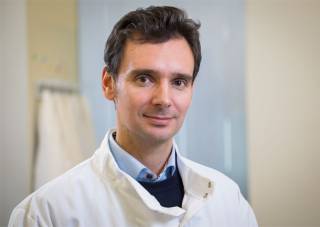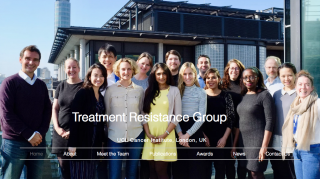Group Leader: Professor Gerhardt Attard
Professor Attard’s lab are using next-generation sequencing on plasma DNA and single-cell transcriptional profiling to interrogate treatment resistance. Prof Attard’s team are defining motion pictures of high-resolution molecular snap-shots at multiple time-points in disease evolution as cancers respond and subsequently become resistant to treatment. Their discoveries are identifying cancer vulnerabilities to be exploited therapeutically and leading to the design of clinical trials of biomarker-directed strategies for rational treatment selection and sequencing.
Research overview
Despite in cases of significant initial responses, treatment resistance remains the hallmark of metastatic disease. The Treatment Resistance Group is a multi-disciplinary team using next-generation sequencing on tumours and plasma DNA and single-cell transcriptional profiling to look for clues to the causes of treatment resistance and follow these to develop clinically applicable biomarkers and improved therapeutic strategies. Repeated blood sampling is feasible in the majority of patients and analyses of plasma DNA allows tracking of genomic evolution to identify emergence of resistant clones as patients progress on a treatment and regression (in some cases) after treatment discontinuation.
Prostate cancer
Some of the group’s recent work, together with collaborators in Italy (Francesca Demichelis, University of Trento and Ugo de Giorgi, IRST, Meldola), used plasma DNA to track androgen receptor (AR) gene aberrations in advanced prostate cancer patients. These studies identified a strong association between plasma AR aberrations and resistance to second-line hormonal treatments, with selection of functionally-advantageous AR mutant clones in patients progressing on the steroid synthesis inhibitor abiraterone.
Based on these data we have been awarded funding from Prostate Cancer UK to develop plasma AR into a clinically applicable and qualified biomarker (the PARADIGM trial, Plasma AR Directed Management of Metastatic castration-resistant prostate cancer). We have also integrated plasma DNA analysis into multiple clinical trials, including the national platform STAMPEDE trial for men starting androgen deprivation therapy. We are also expanding this strategy for the discovery of novel drivers of resistance in other cancer types. With our collaborators in the PCF-SELECT consortium we are developing a clinically useful plasma DNA targeted NGS assay.
Using optimised micro-fluidic approaches, we are using molecular bar coding of individual cells to obtain whole transcriptome data at a cost of £2/cell and interrogate large population of single cells for treatment-resistant clones. The detection and characterisation of these populations is allowing us to generate hypotheses for improved treatment combinations and sequences to reduce the risk of relapse. Our group also leads genomic analyses in the STRATOSPHere consortium aiming to characterise hormone-naïve prostate cancer from men with metastatic prostate cancer starting long-term androgen deprivation therapy.
Funding
External peer-reviewed funding: Cancer Research UK, Prostate Cancer UK, Prostate Cancer Foundation, European Union, Irish Health Research Board, European Society of Medical Oncology, Medical Research Council.
 Close
Close



